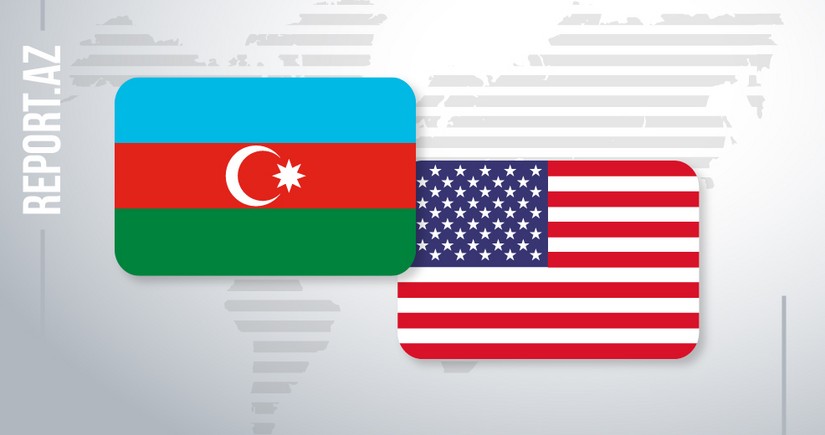Diplomacy on a rollercoaster: The shifting dynamics of Baku–Washington relations
- 07 August, 2025
- 14:19

Diplomatic relations between Azerbaijan and the United States, officially established on February 28, 1992, have seen numerous ups and downs, reflecting changes in bilateral, regional, and global politics.
Following Azerbaijan’s independence, ties with Washington quickly expanded, covering energy, security, trade, and reform. The US was among the first to recognize Azerbaijan’s sovereignty, laying the foundation for strategic cooperation—especially through projects like the Contract of the Century and the development of oil and gas export infrastructure to global markets.
However, relations haven’t always been smooth. Transitions in US administrations often led to shifts in foreign policy priorities, influenced by lobbying groups. The Armenian lobby in the US has long played a significant role—evident in the continued influence of Section 907 of the “Freedom Support Act” and political support for Armenian interests in states like California and New Jersey, where a large Armenian diaspora is concentrated.
While several US presidents, including George W. Bush, Barack Obama, and Donald Trump (during his first term), suspended the enforcement of Section 907, pro-Armenian lobbying efforts have kept it alive in subsequent administrations. Figures like Senator Robert Menendez, convicted of corruption in 2025, along with Adam Schiff and Frank Pallone, have been prominent voices promoting anti-Azerbaijani positions in US policy circles.
Despite persistent attempts by the Armenian lobby to damage relations between Washington and Baku, Azerbaijani-American ties remain pragmatic in nature.
For the past 30 years, Baku has consistently emphasized to Washington that pragmatism should prevail in bilateral relations, which must be based on the interests of both countries — not the agenda of any ethnic group.
Moreover, US-Azerbaijan relations are significant for a broader geographic context. This includes ensuring Europe's energy security, combating terrorism, and Azerbaijan’s contribution to regional stability.
Donald Trump's First Term
Now we smoothly move on to Donald Trump's first presidential term, during which relations with Azerbaijan were based on these principles. Trump, with his approach and love for big deals, quickly found common ground with Baku. The Trump administration actively supported Azerbaijan's energy projects, especially the Southern Gas Corridor, which, as we see today, has become a significant asset for the EU in reducing its dependence on Russian gas. While the volumes of Azerbaijani gas may seem small to some, at least three EU countries were able to diversify their gas supply sources thanks to the SGC, and around ten countries today either receive or want to receive Azerbaijani gas to also achieve supply diversification.
In 2018, during a meeting in Davos, Trump and Aliyev discussed not only oil and gas but also shared views on pragmatic politics, where national interests are placed above anything else. Azerbaijan, like Trump, emphasizes the importance of a strong state, traditional values, and economic independence, which creates a certain similarity in approaches. For example, Baku actively promoted its role as a reliable partner in the fight against terrorism, providing logistical support for US operations in Afghanistan. This was in Trump’s spirit: less talk, more action.
The Second Karabakh War in the fall of 2020 coincided with the end of Trump's presidential term and the election campaign. Unlike a number of other foreign leaders, Trump did not make biased statements about the war in the South Caucasus, limiting himself to neutral calls for peace. In addition, the Trump administration effectively opposed the Armenian lobby in Congress, blocking attempts to adopt anti-Azerbaijani resolutions. Trump, with his "America First" stance, did not allow these initiatives to move forward, focusing instead on strategic partnership with Baku.
Thus, during Trump's first term, relations between Washington and Baku were practical and partnership-based, and in fact aligned with the interests of both countries..
Biden and His Team Undid All the Successes of the Trump Administration
The years 2021–2024 — the period of Joe Biden's presidency — can definitely be called the worst stage in relations between Washington and Baku. Secretary of State Antony Blinken particularly excelled in damaging these relations. Constant interference in Azerbaijan's internal affairs, bias in the post-conflict situation in the South Caucasus, and the overtly pro-Armenian stance of the Biden-Blinken tandem effectively nullified all the successes of the Trump administration.
It reached the point where Azerbaijan’s leadership openly stated that the Biden-Blinken ideology leads to the collapse of bilateral relations. Azerbaijani President Ilham Aliyev accused Secretary of State Antony Blinken of undermining trust. He reminded that Azerbaijan was a reliable partner of the US in Afghanistan and Iraq, providing logistics and support, and in return received sanctions and criticism after withdrawing its troops: "We were a reliable partner, but after our troops left, sanctions were announced again us." In Baku, the opinion was increasingly solidifying that Washington is an unreliable ally whose policy dances to the tune of the Armenian lobby and internal political dynamics in the US. Especially irritating was Section 907, which, despite temporary suspensions, the Armenian lobby continued to push, turning Congress against Azerbaijan. As a result, trust in the US as a partner in Baku was seriously undermined, which is understandable: who would want to be friends with someone who praises you for gas but immediately slaps you with sanctions?
Azerbaijan’s Foreign Minister Jeyhun Bayramov, commenting on Washington’s actions in the South Caucasus over the past four years, stated that the US was providing support to Armenia, and such actions are unacceptable for a party positioning itself as a mediator.
Trump’s Second Presidency
With Donald Trump’s return to the White House, there are encouraging signs that relations between Washington and Baku are returning to a pragmatic course. Commenting on the development of ties with the United States, Azerbaijani President Ilham Aliyev noted that during Trump’s first term, Azerbaijan had no problems with Washington, and expressed hope for the continuation of a pragmatic policy. On July 19, at a media forum in Khankфndi, Aliyev stated that Trump’s victory in the November 2024 election would have been preferable for the Azerbaijani people, considering that he, like Azerbaijan, shares fundamental values, including family values. Trump is the only US president who has not started any wars. The Azerbaijani leader added that Trump is someone who ends wars,and this gives hope for a more balanced approach to the South Caucasus. Moreover, Aliyev thanked both the former and current US president for the efforts to facilitate a peace agreement between Baku and Yerevan, despite their global agendas.
Trump, in turn, shared a fragment of Aliyev’s speech in Khankandi on social media, which experts and political analysts interpreted as a gesture of respect and interest in regional developments.
Today, we see Trump striving to stop armed conflicts around the world. In some cases he succeeds, in others not.
In addition, in just over six months since Trump returned to the White House, the presidents of Azerbaijan and the US have exchanged congratulations and messages on various occasions. Each time, the leaders emphasized their desire to expand and deepen bilateral relations. Thus, it can be said that a special personal and values-based dialogue is developing between the two leaders, which will lead to a new chapter in Baku-Washington relations. A personal meeting in Washington would send a clear signal toward that direction.
